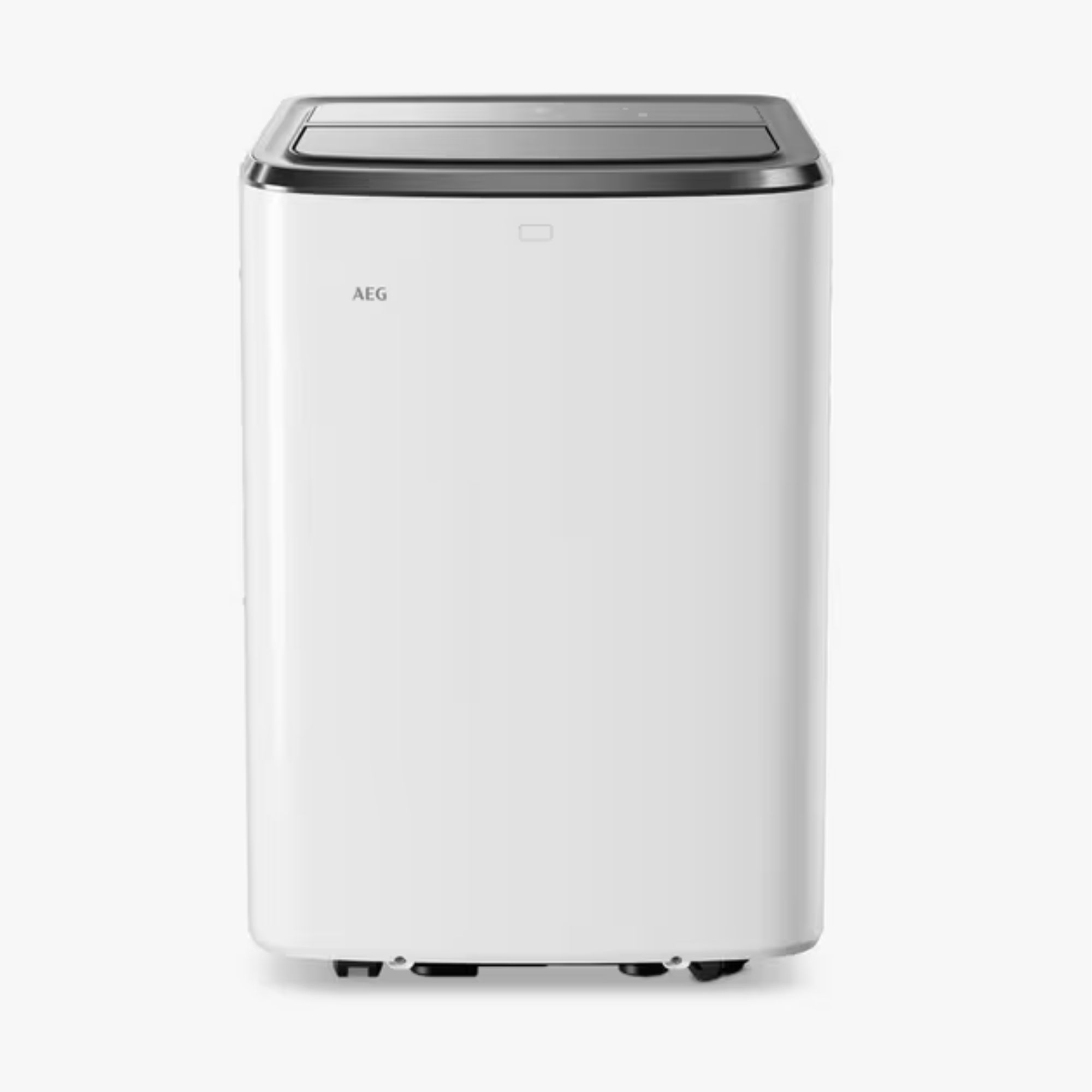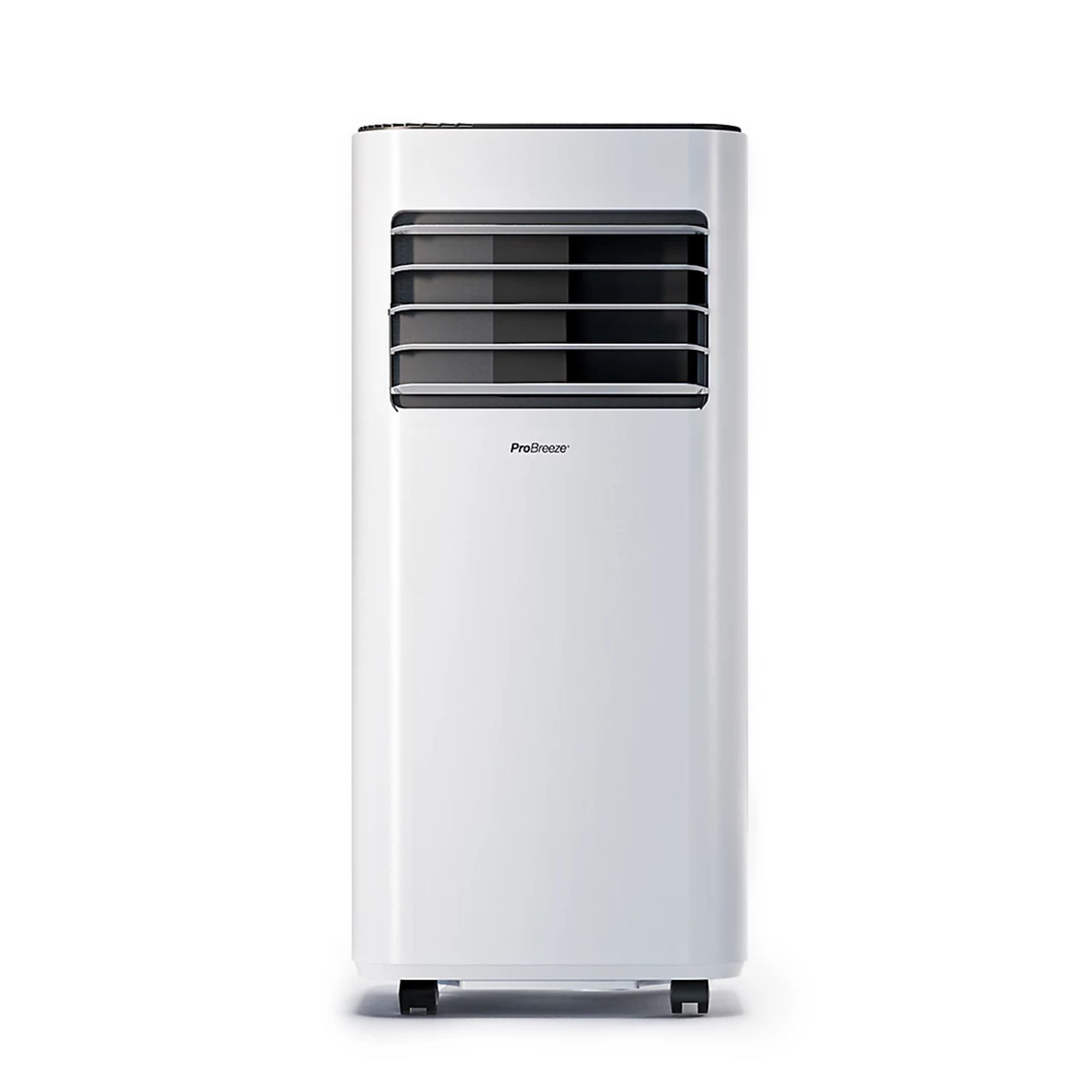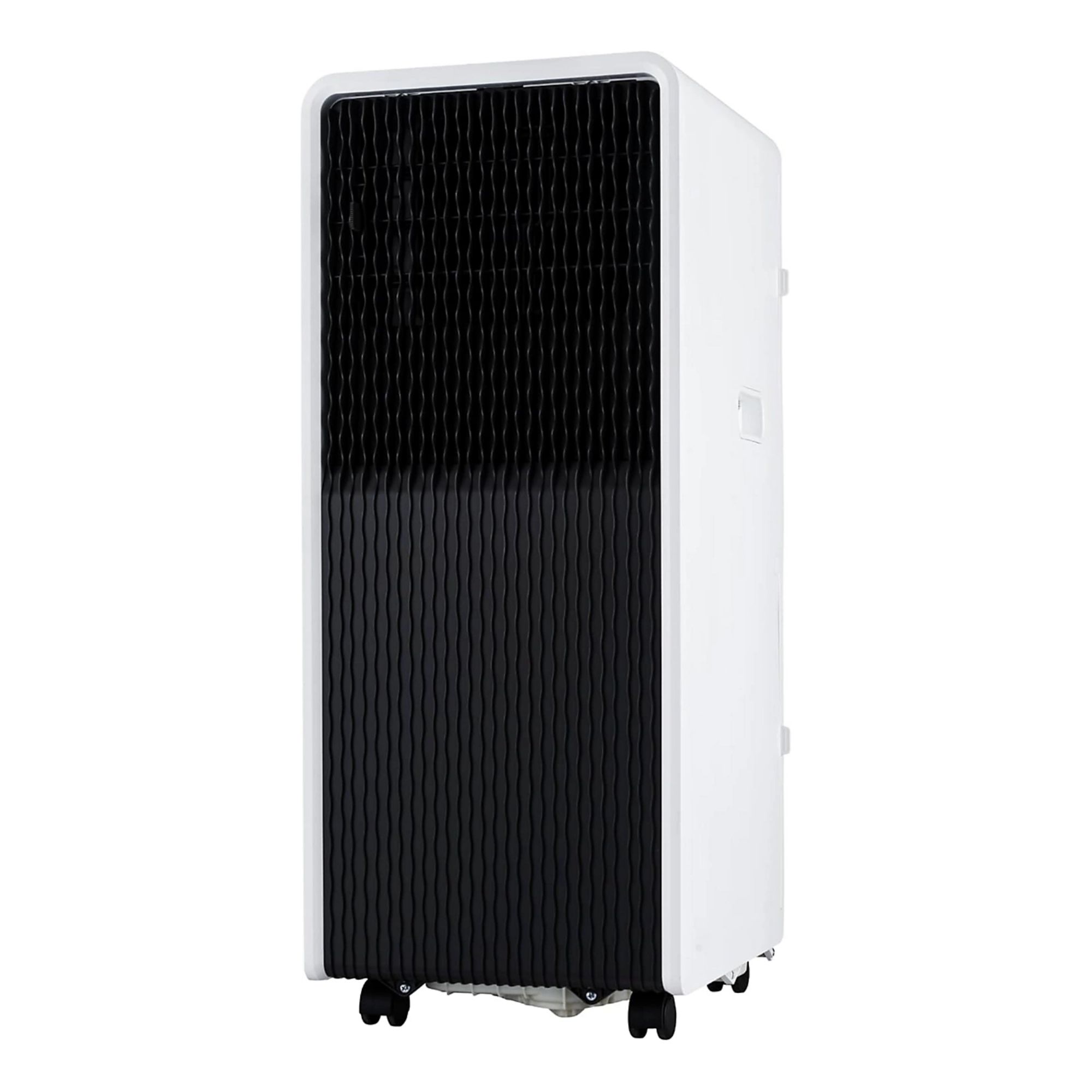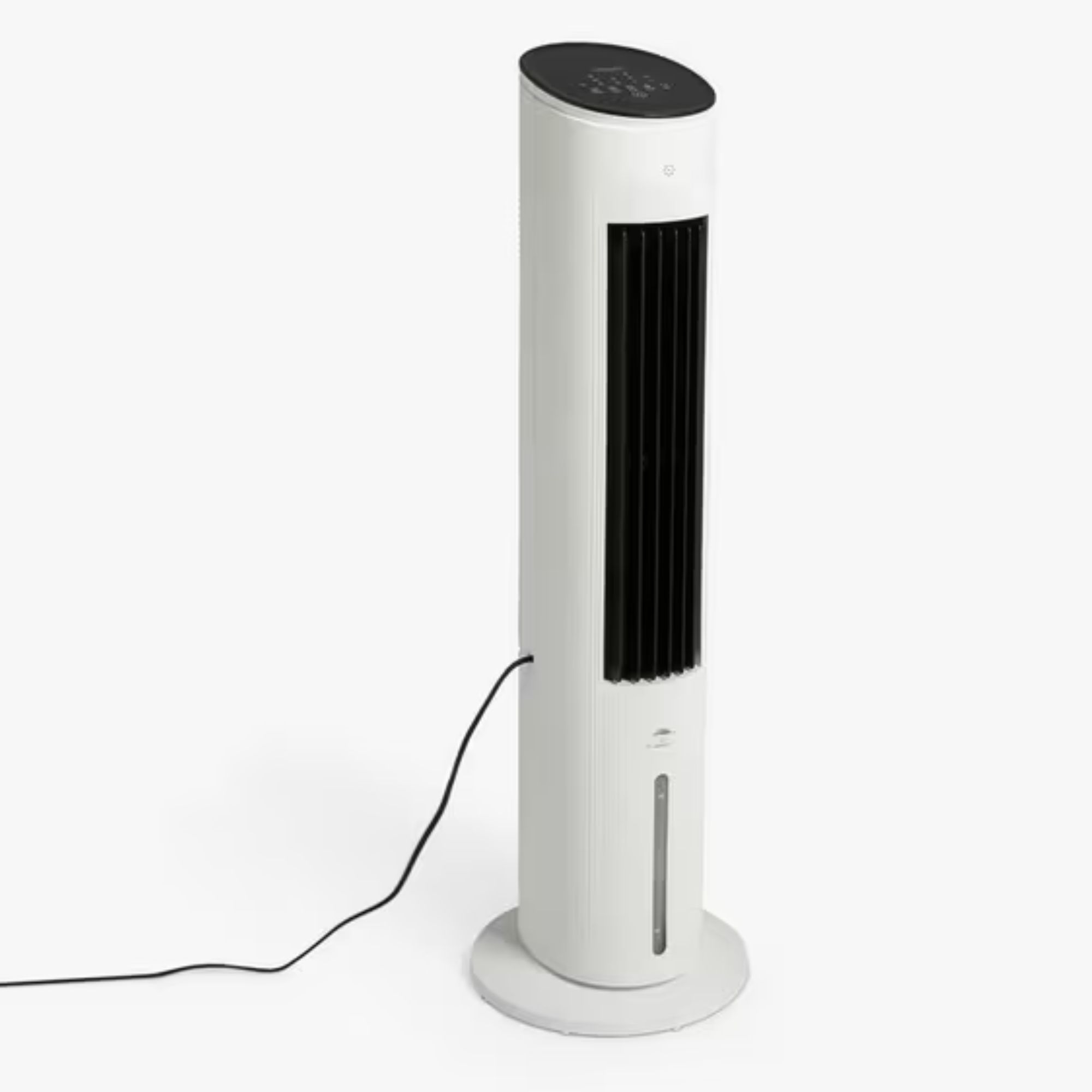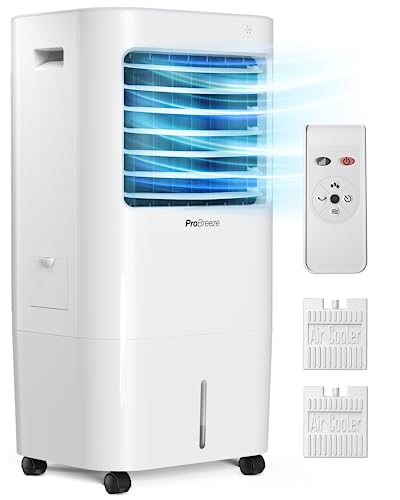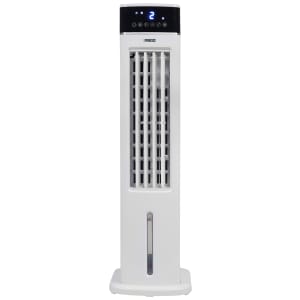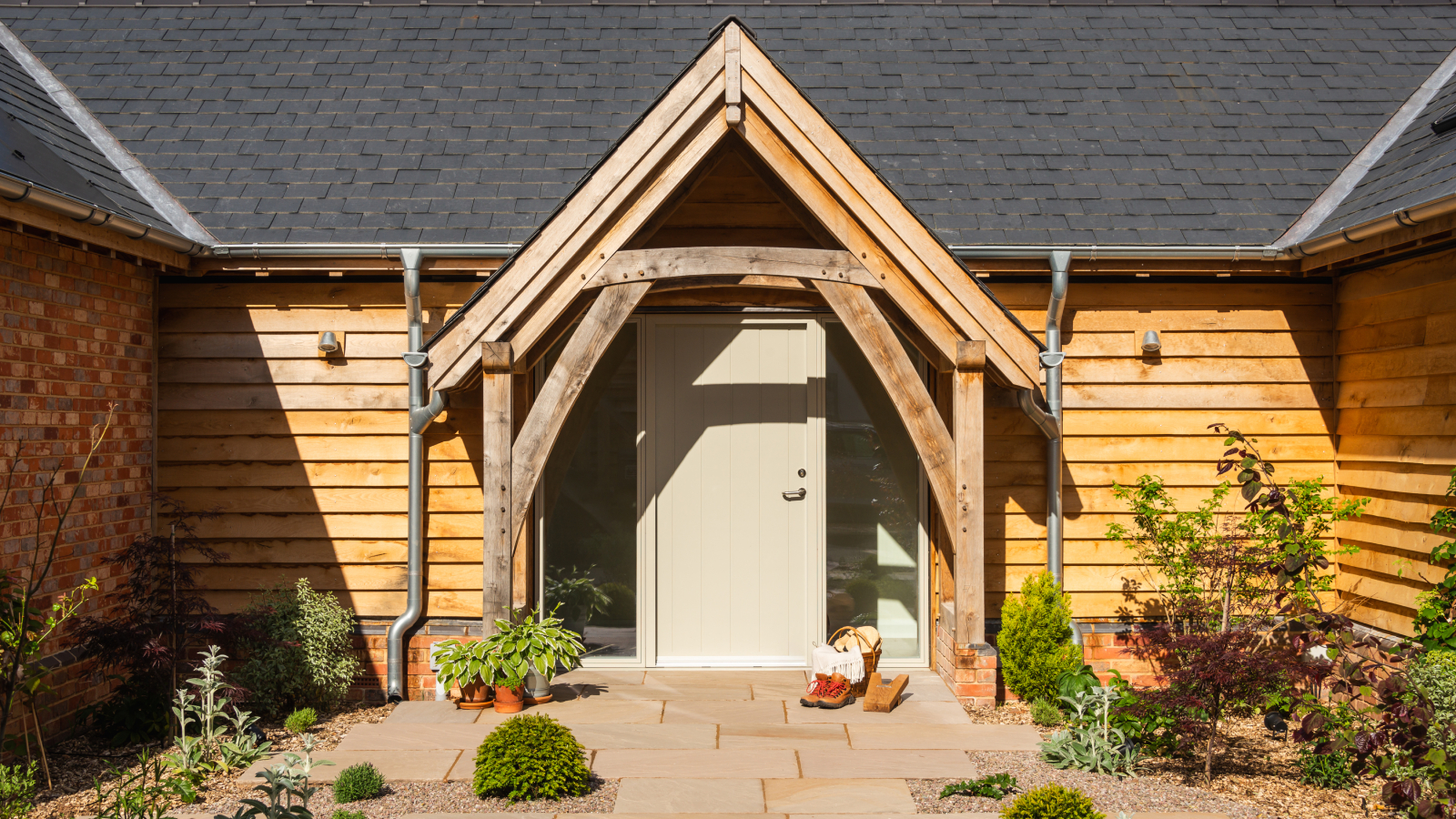Air conditioner vs air cooler — what's the difference and which should I choose for my home?
We break down the pros, cons and key differences to help you choose between an air conditioner and an air cooler for your home
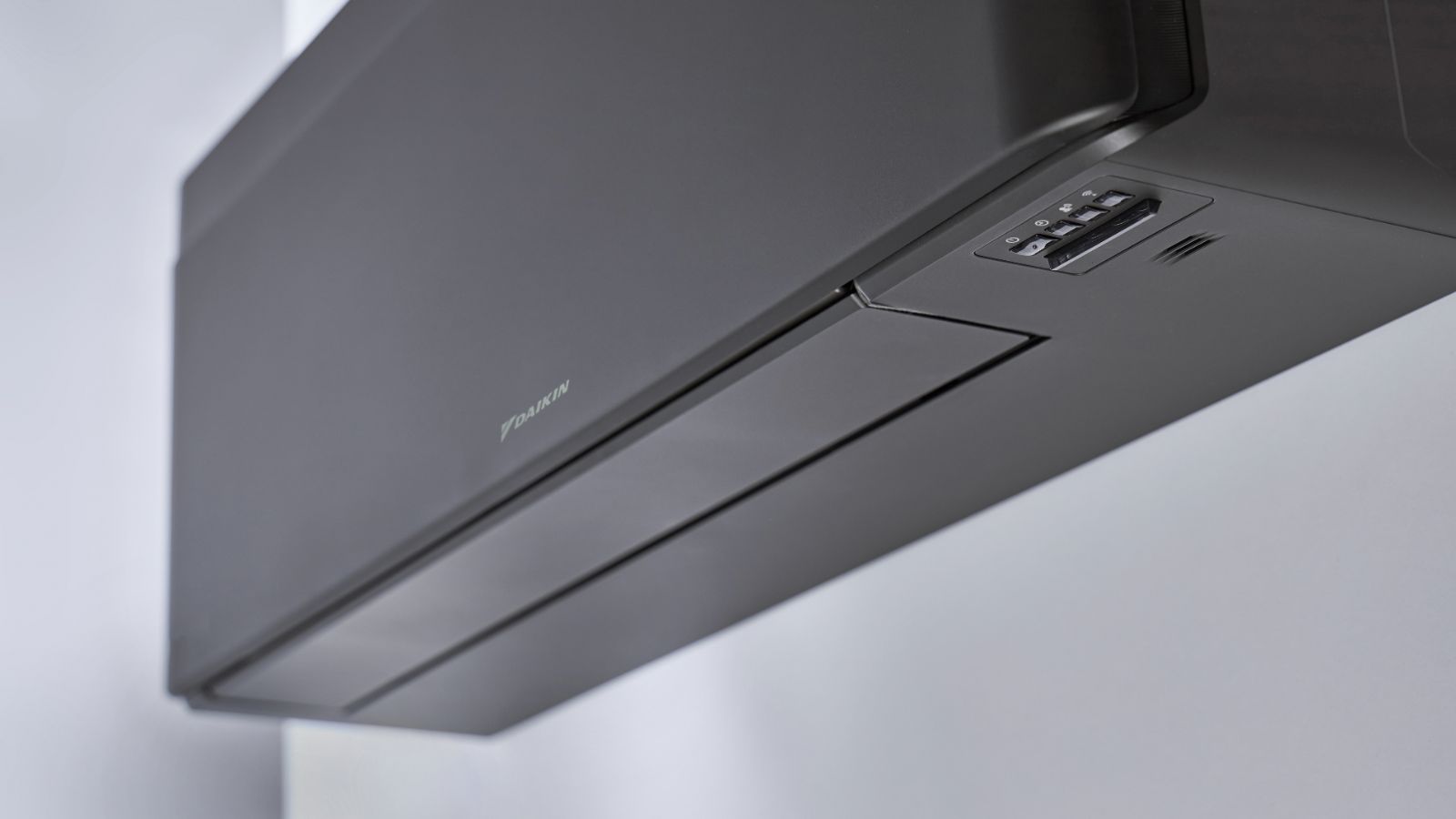
When the summer heat ramps up and your trusty oscillating fan starts to feel more like a hairdryer, it’s natural to wonder: is it time to invest in something stronger?
Two of the most common options for keeping your home cool are air conditioners and air coolers. They may sound similar, but they work in very different ways.
One uses refrigeration technology to chill the air and reduce humidity, while the other relies on evaporative cooling to deliver a light, refreshing breeze.
The right choice depends on a few key factors – including the size of your space and the climate you live in. In this guide, we compare the two main types of home cooling appliances, explore their pros and cons, and help you decide which is best suited to your space.
Air conditioner vs air cooler: Which one should you buy?
Both air conditioners and air coolers are designed to bring down the temperature indoors, but they do so in very different ways.
"An air conditioner uses a refrigerant cycle to cool the air, working similarly to how a fridge works," explains Nicholas Auckland, energy expert at Trade Radiators. "They draw warm air from the room, pass it over a cold evaporator coil that contains refrigerant, and this is what absorbs the heat. The cooled air is then circulated back into the room making the room cold. The heat that's extracted from the air is expelled outside through a vent hose (in portable units) or an outdoor condenser unit (in split systems)."
"An air cooler, by contrast, cools the air through the evaporation of water, rather than refrigerant. They draw in the warm, dry air, pass it over some water soaked pads, and as the water evaporates, it absorbs heat from the air therefore lowering its temperature. The cooled, humidified air is then blown back into the room."
When to choose an air conditioner
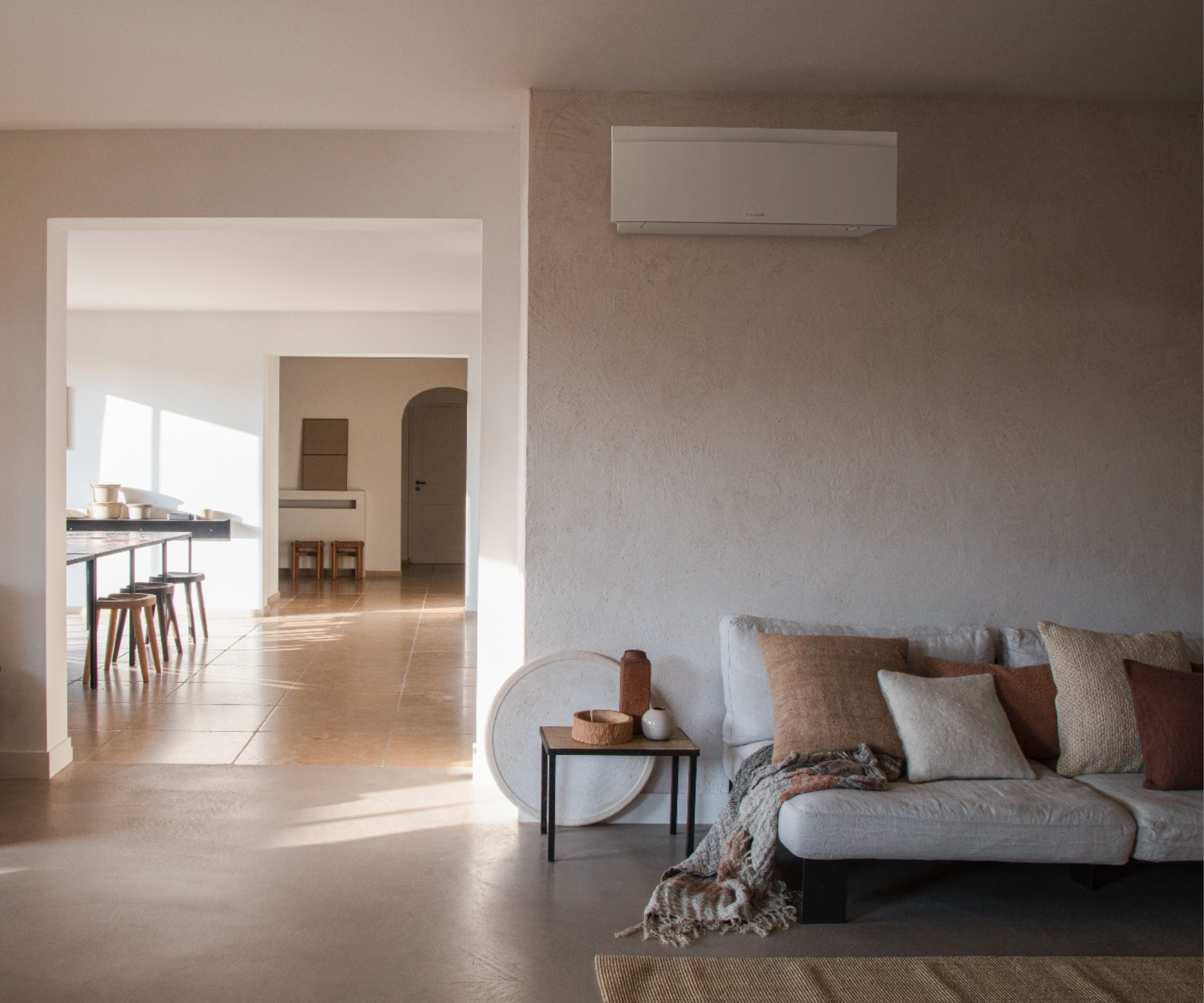
“Air conditioners are ideal for large rooms or humid environments,” says Justin Nielsen, home improvement expert at Wolf River Electric. “They provide precise temperature control and can significantly reduce humidity, which makes them much more effective than air coolers in UK conditions.”
Modern air conditioning systems have evolved considerably in recent years and are often multifunctional, providing both heating and cooling from a single unit. Dean Franklin, co-founder of ADL Air Conditioning, explains: “Air conditioners don’t just cool anymore. They transfer energy from the outside air, so they can heat your home in winter and cool it in summer – all in an energy-efficient way. You also get the added benefit of cleaner air, as many models filter out allergens, dust and pollen.”
While fixed AC installation does require a professional, that upfront investment pays off in long-term comfort and energy savings. Just make sure your home is well insulated so the system can perform at its best – especially in older properties.
The pros of air conditioners
- Powerful cooling performance, even in humid conditions.
- Year-round use with integrated heating functions.
- Helps reduce indoor humidity and can improve indoor air quality.
- Zoned temperature control available with multi-split systems.
- Ideal for large or frequently used rooms.
The cons of air conditioning
- Higher upfront costs compared to air coolers.
- Requires professional installation for fixed units.
- May not work well in poorly-insulated homes.
The verdict: If you’re looking for reliable, consistent cooling or want a long-term solution that can both heat and cool your home, an air conditioner is a worthwhile investment.

Dean Franklin is an air conditioning entrepreneur from Essex, co-founder of ADL Air Conditioning, and winner of The Apprentice 2025. He works closely with Daikin, purveyors of high-performance air conditioning systems known for their energy efficiency, sleek design, and innovative climate control technology.
Shop portable air conditioners
When to choose an air cooler
Air coolers – also known as evaporative coolers – offer a simple, low-energy way to stay cool. However, it’s important to understand where they work best – and where they fall short.
“An air cooler reduces the room temperature by adding moisture to the air and increasing the relative humidity of the space,” explains Chris Michael, Chair of Meaco. “As Britain is a wet island with high relative humidity levels in the summer, an air cooler has proven to be of limited use in the UK and is better suited to much drier climates in the world.”
In other words, while air coolers are popular in arid regions where added humidity is welcome, they’re far less effective in humid environments like the UK. In fact, adding more moisture to already damp air can make a space feel even less comfortable.
There are some exceptions. Chris Michael notes that air coolers may have a role in large, open-plan areas where doors and windows are left open, such as department stores, marquees or warehouse-style spaces – but they’re rarely suited to domestic spaces.
The pros of air coolers
- More affordable to buy and run than air conditioners.
- No installation required – simply plug in and go.
- Adds moisture to dry indoor air if needed.
The cons of air coolers
- Not as effective in the UK climate.
- Can increase humidity in already damp rooms.
- Requires regular refilling and cleaning.
The verdict: Air coolers are a budget-friendly, low-energy option that work best in hot, dry environments or open, airy spaces. But because they add moisture to the air, they’re less effective in humid conditions – which are common in the UK.

Chris and his partner Michelle started Meaco in 1991. Meaco is now regarded internationally as a major player in the air conditioning industry selling to 20+ countries throughout Europe, North America and South Africa. Meaco sets the benchmark for quality and development in its sector, leading by example and reducing the energy consumption of its appliances.
Shop air coolers
FAQs
Do air coolers work in closed rooms?
Not really. Air coolers work by adding moisture to the air, so they’re most effective in open or well-ventilated spaces where fresh air can circulate. Use one in a sealed room and you’ll likely end up with rising humidity and a space that feels stuffy rather than cool.
Can air conditioning help with allergies?
According to Dean Franklin, "Some air conditioners can give you relief from your allergies because they can capture the allergens in the heat pump filter and improve the quality of air that you are breathing. Not only do air conditioners keep you at the ideal temperature, but they also remove pollutants, pollen and particles from your breathing space."
Is air conditioning suitable for older homes?
Yes, you can install air conditioning in an older property, though it’s worth checking a few basics first. For any air-to-air heat pump system to work efficiently, your home needs to hold on to the conditioned air, which means good insulation is essential. If you’re unsure about your property's suitability, a qualified HVAC installer can assess your home and recommend any upgrades that might be needed.
"Portable air conditioning is an excellent way of trying out home cooling before thinking about investing in a fixed system, and far cheaper," says Chris Michael, Chair of Meaco. "It's always best to chat through your application with the application advisors first; they will be able to guide you. But the best piece of advice for either type, is always to buy as large a machine as you can; you will never regret the extra capacity!"
Get the Homebuilding & Renovating Newsletter
Bring your dream home to life with expert advice, how to guides and design inspiration. Sign up for our newsletter and get two free tickets to a Homebuilding & Renovating Show near you.

Gabriella is an interiors journalist and has a wealth of experience creating interiors and renovation content. She was Homebuilding & Renovating's former Assistant Editor as well as the former Head of Solved at sister brand Homes & Gardens, where she wrote and edited content addressing key renovation, DIY and interior questions.
She’s spent the past decade crafting copy for interiors publications, award-winning architects, and leading UK homeware brands. She also served as the Content Manager for the ethical homeware brand Nkuku.
Gabriella is a DIY enthusiast and a lover of all things interior design. She has a particular passion for historic buildings and listed properties, and she is currently in the process of renovating a Grade II-listed Victorian coach house in the West Country.
